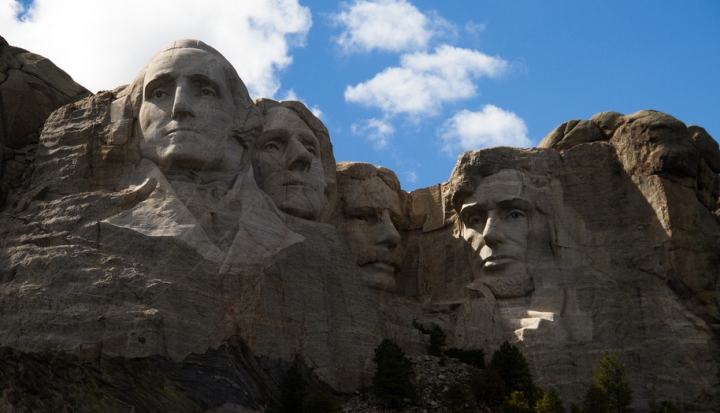Guest blog
We Americans love the flag, the military, parades, and patriotic music. Veterans Day, Memorial Day, and Fourth of July are celebrated with near-religious rituals. Presidents Day brings only a few images of George Washington (who now shares the holiday with Abe Lincoln) and specials at auto dealers. The day passes without much reflection.
Certainly the two presidents, both born in February, deserve our gratitude. Washington, the “Father of His Country,” could have taken full power after the Revolutionary War, but he went home, slowly joined the process of making an unprecedented republican constitution, then almost single-handedly united this fractious country in the first years of its new government. Most remarkable of all, after eight years, he welcomed an elected successor and retired to his plantation.
Four score years after Washington got us started, Abraham Lincoln, a career politician, led the northern half of the country into a civil war sparked by his election. He held the north together when all seemed lost, freed some slaves, and he persisted to a bloody victory with unprecedented loss of life. Then, before he could help “bind up the wounds,” he was murdered. It seemed that he passed to the ages, with so many lost soldiers, as a martyr to the cause that “this nation under God should have a new birth of freedom.”
Washington, a man of few words, witnessed to what republican government could provide, and would require, for those who meant to govern themselves in freedom. Lincoln, in many ways America’s greatest theologian, renewed faith in “the proposition that all men are created equal.” He belonged to no church but he told his countrymen what a distant but just God might require if “government of the people, by the people, for the people” was not to “perish from the earth.”
What are we American Catholics to make of such presidents?
Historically Catholics in most times and places have did not have much use for presidents, or for republican government. They preferred strong rulers–emperors and kings–especially if they were Catholic. And Catholics have tolerated more than a few dictators, as long as they took good care of the church. Catholic teaching since the end of the 19th century contends that the form does not matter so long as governments take responsibility for the common good.
In practice, unfortunately, most popes and certainly most European and Latin American bishops, have thought the common good should not be entrusted to elected legislatures, even less to political parties. The contentiousness of democratic politics involves multiple and conflicting economic interests, social groups, and, worst of all, religious beliefs and moral convictions. Almost any serious Catholic statement on public life will contrast the unity and authority of the church, the very body of Christ, which should be the model for governance, with the dangerous conflicts, even chaos, of democratic society and its politics.
By most Catholic standards, then, Washington, deist, secularist, revolutionary, and slaveholder, and Lincoln, unaffiliated Christian, ambitious politician, reluctant liberator, and hard-headed war-maker, would hardly merit respect, certainly not canonization. Saints of our civil religion they may be, but the very idea of civil religion brings dark looks from even the most American among us Catholics.
Guest blog posts are the work of the author and do not necessarily reflect the opinion of U.S. Catholic, its editors, or the Claretians.













